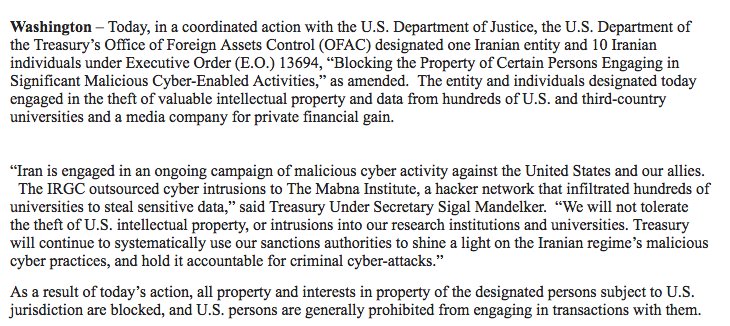
Americans should not be confident about security of the 2020 election, our experts panel says. Today's Cybersecurity 202 w/ @TonyaJoRiley: washingtonpost.com/news/powerpost…
@TonyaJoRiley “There are no signs that any part of our institutions are capable of providing an election that is reasonably secure from tampering and manipulation,” -- @daveaitel
@TonyaJoRiley @daveaitel “Every part of the voting process is vulnerable. This includes the voter registration process, the voting itself, the vote tabulation, and the results-reporting system,” -- @schneierblog
@TonyaJoRiley @daveaitel @schneierblog “Although a lot of progress has been made, there are still significant vulnerabilities and dedicated adversaries bent on undermining our elections and democracy more generally,” -- @C_Painter
@TonyaJoRiley @daveaitel @schneierblog @C_Painter Many blamed Congress and GOP leaders for failing to mandate election security reforms. “The Senate majority leader has blocked every attempt to give authority and resources... and is responsible for what happens in November.” -- @alexstamos
@TonyaJoRiley @daveaitel @schneierblog @C_Painter Others pointed to the Iowa caucus debacle. “The Iowa debacle and Nevada's last-minute changes to their processes suggest we are not ready for the 2020 primaries. If we can't fix systems before the general election, Americans should be deeply concerned." @BetsOnTech
@TonyaJoRiley @daveaitel @schneierblog @C_Painter @BetsOnTech 43% of respondents said Americans should be confident in 2020 security. “We have invested in our state and local elections authorities … Americans should go to the ballot box in November confident that their votes will be counted.” -- Rep. @JimLangevin
@TonyaJoRiley @daveaitel @schneierblog @C_Painter @BetsOnTech @JimLangevin But many of them still had reservations. “We are considerably better off than we were four years ago. However, the threat to the electoral infrastructure and the possibility that the public will lose confidence in the process remains very real." -- @CyAlliancePrez
@TonyaJoRiley @daveaitel @schneierblog @C_Painter @BetsOnTech @JimLangevin @CyAlliancePrez And experts on both sides stressed Americans should not be so fearful of election interference they don’t participate. “Should Americans be concerned about election security? Yes. Should this keep Americans away from the polls? No!” -- @j_winterton
• • •
Missing some Tweet in this thread? You can try to
force a refresh



